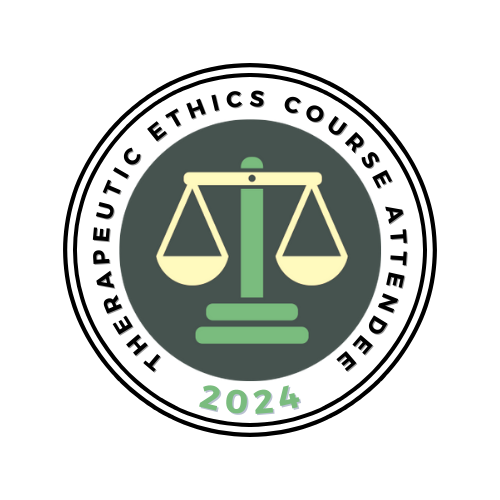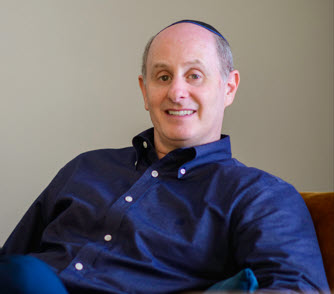Yaacov Rosedale
Credentials
Finances
Licensed Abroad
- 9A החוזה מלובלין
- Beit Shemesh, 99623
- Email Me
- FREE CONSULTATION
-
 Business HoursEveningsFridays/Weekends
Business HoursEveningsFridays/Weekends
Yaacov Rosedale
 Verified
Verified
Credentials
Certified Alcohol and Drug Abuse Counselor, Licensed Professional Counselor
MSC, LPC
Finances
350-500 NIS
N/A
Sliding Scale
ABOUT THE THERAPIST
Is addiction harming you or someone you love?
Hi, I’m Yaacov Rosedale, a licensed professional counselor and addiction specialist. I help individuals and couples overcome substance use, compulsive behaviors, and relationship struggles.
Whether you’re battling addiction, feeling stuck in painful patterns, or watching a loved one suffer, you don’t have to face it alone. In my private practice in Ramat Beit Shemesh Alef, I provide a warm, nonjudgmental space to heal, rebuild trust, and learn practical tools for lasting change.
Take the first step toward a healthier, more connected life. Call today.
I specialize in helping people learn more about themselves and learn the skills they need to find more peace and contentment in life and learn to deal with the problems that life throws their way! I provide an empathetic space that is warm and inviting to help you navigate your issues with a professional in a safe place.
Call today to get started!
Are you struggling with any of the following?
- Internet or pornography addiction
- Sexual abuse or trauma
- Depression, anxiety, or persistent emotional pain
- Marital conflict or relationship challenges
- A behavior or substance you can’t stop, no matter how hard you try
These are complex issues that no one should face alone. Whether you’re wrestling with addictive patterns, feeling stuck in emotional pain, or trying to make sense of trauma, there is help—and hope.
I provide therapy in a safe, empathetic, and confidential environment. My approach is trauma-informed and integrative, drawing from evidence-based methods such as Cognitive Behavioral Therapy (CBT), psychodynamic therapy, and the 12-step model.
I work collaboratively with my clients to help them build insight, develop practical tools for emotional regulation, and create meaningful, lasting change. Whether you are seeking therapy for yourself or support in navigating a loved one’s struggles, I am here to help.
You don’t have to do this alone.
I offer a free initial phone consultation to explore whether we’re a good fit.
Take your first step toward healing, peace, and a more meaningful life. Call today.
As a therapist, my role is to be a trusted partner in your healing journey—someone who listens without judgment, challenges with compassion, and walks beside you as you face the things you may have been avoiding or carrying for far too long. I offer more than just professional guidance; I provide a safe, confidential space where vulnerability is met with deep respect. I understand that therapy isn’t about giving advice or “fixing” people. Instead, it’s about creating the conditions where healing, insight, and change can naturally unfold. My role is to help you discover your own strength, reconnect with your inner wisdom, and develop the tools you need to live a life that feels grounded, meaningful, and truly yours.
QUALIFICATIONS
MSC
Bellevue University
2021
LPC
Licensed Professional Counselor
Degree
MSCEducation
Bellevue UniversityYear of Graduation
2021Degree
LPCEducation
Licensed Professional CounselorYear of Graduation
Years in Practice
6
LICENSED IN THE USA
ADDITIONAL CREDENTIALS
Ph.D., Psychology, Addiction Specialization - Northcentral University, Current (in progress)
Post Graduate Training: Neve Family Institute, Israel, July 2021
CASAP – Certified Addiction and Substance Abuse Professional, 2010
B.S. Management, minor - Psychology, Touro University, May 1992
Professional Affiliations:
ACA (American Counseling Association), 2018 – present
APA (American Psychological Association), 2019 – present
Ohio Board of Marriage and Family therapy, 2020 – present
DISTANCE COUNSELING
Online Therapy
PRIMARY SPECIALTIES
Abuse
Addictions
Alcohol Abuse
Couples / Relationship / Marriage Counseling
Drug Abuse
ADDITIONAL SPECIALTIES
Anxiety / Panic
Bipolar Disorder
Borderline Personality Disorder
Codependency
Family Issues
Holistic
Life Transitions
Personality Disorders
Self-Esteem
Spiritual Concerns
Stress Management
Trauma / Post Traumatic Stress Disorder PTSD
CLIENT FOCUS
Population
Adults
Couples
Men
Women
(I only see women on Zoom)
Languages Spoken
English
TREATMENT APPROACH
BehaviorismBehaviorism is an approach to psychology that emphasizes the role of the environment in shaping behavior. It is based on the assumption that behavior is determined by environmental influences, such as reinforcements and punishments, rather than by internal influences, such as thoughts and feelings.
Cognitive Behavioral Therapy (CBT)Cognitive Behavioral Therapy (CBT) is a type of psychotherapy that focuses on how one's thoughts, feelings and behaviors are connected and can be changed. It is based on the idea that how we think (cognition) and how we feel (emotion) can influence how we behave. CBT helps people identify and challenge distorted thinking and replace it with more balanced thinking, leading to improved mood and behavior. ‘Homework’, usually containing practical writing exercises, is often completed by the client between sessions to reinforce the therapy. Examples of tools that practitioners often use are journaling, challenging beliefs, and mindfulness.
Dialectical Behavior Therapy (DBT)Dialectical Behavior Therapy (DBT) is a type of cognitive-behavioral therapy developed by Marsha Linehan to help people learn to better manage and cope with emotions and stress. It focuses on developing skills and strategies to help regulate emotions, improve relationships and communication, and reduce self-destructive behaviors. Through DBT, people learn to identify and modify unhealthy thoughts and behaviors, while also learning to accept and validate their own feelings. DBT teaches skills to help individuals become aware of and accept and regulate their emotions, tolerate distress, and improve interpersonal relationships.
Emotion-Focused TherapyEmotion-focused therapy (EFT) is a type of psychotherapy that is based on the idea that emotions play a key role in a person’s mental health. EFT focuses on helping people to identify, accept, and manage their emotions in a healthy and productive way. The goal of EFT is to help people identify and express their emotions, understand how those emotions impact their behavior, and learn how to manage their emotions in a way that is adaptive and healthy. EFT is a research-based approach to psychotherapy that has been found to be effective in helping people manage a variety of mental health conditions. It has been used successfully in the treatment of individuals, couples, and families, as well as with groups. EFT is particularly beneficial for people who struggle with emotional regulation, mood disorders, anxiety, trauma, and relationship issues.
Internal Family Systems (IFS)Internal Family Systems (IFS) is an evidence-based psychotherapy that uses the metaphor of an internal family of parts to help people gain awareness of how different parts of themselves can interact in healthy and unhealthy ways. IFS encourages people to become curious about their different parts, with the goal of helping them gain access to their true Self or core. Through this process, people can learn to recognize and care for the different parts of themselves, as well as develop compassionate understanding for the origins of their parts. A key principle of IFS is that each part within the person has its own positive intention and is trying to protect the person in some way. By understanding the positive intention of each part, the practitioner and client can work together to help the parts feel heard and understood, and to find more adaptive ways of meeting their needs. IFS has been found to be an effective treatment for a variety of mental health issues, including depression, anxiety, trauma, and relationship issues.
Mindfulness-Based Cognitive Therapy (MBCT)Mindfulness-Based Cognitive Therapy (MBCT) is a form of therapy that combines cognitive behavioral therapy with mindfulness practices. It is based on the idea that our thoughts, emotions, and physical sensations can affect our mental health. MBCT helps individuals become aware of their thoughts, emotions, and physical sensations in order to gain insight and control over them. MBCT helps clients learn how to recognize their sense of being and see themselves as separate from their thoughts and moods. This separation can free the client from thought patterns in which the repeated negative messages may be dominating the client’s focus. After developing an awareness of the separation between thoughts, emotions, and the self, people in treatment may find that while the self and the emotions may exist simultaneously, they do not have to exist within the same dimension. The healing can take place when one learns how to interject positive thoughts into negative moods and thereby create a shift in mood.
Person-Centered Therapy (Rogerian Therapy)Person-centered therapy, or Rogerian therapy, was developed by Carl Rogers in the 1940’s. It is a form of talk therapy that emphasizes the importance of providing psychological safety, unconditional positive regard, and empathic understanding to clients. This type of therapy is based on the belief that individuals have an innate capacity for self-actualization and self-understanding and that the therapist's role is to provide a supportive environment in which this process can take place. Through the use of active listening, open-ended questions, and non-judgmental reflection, the therapist helps the client to explore their thoughts, feelings, and experiences in a safe and accepting environment. By doing so, clients are able to gain insight into their issues, develop a greater understanding of themselves, and work towards personal growth.
SERVICES OFFERED
Individual Therapy
Couples Therapy
Group Therapy
Workshops/Educating



 Verified
Verified


